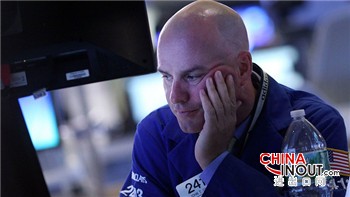近幾周金融市場的異常波動導致一些資產價格出現可觀的上漲,,但更多的是觸目驚心的下跌,。一段時間內,波動將繼續(xù)存在,。此輪波動受到策略性和結構性因素的綜合作用,,反映市場的運行環(huán)境正在發(fā)生變化。而由于它可能改變家庭和企業(yè)的行為,,加上發(fā)生金融事故的風險增大,,我們更加有必要改進對全球經濟中的下行風險的管理。
波動性上升——起起落落——之所以成為金融市場的新常態(tài),,有六大原因:
首先,,新興世界不斷蔓延的經濟放緩勢頭,正在侵蝕支撐資產價格穩(wěn)定在高位的基礎,。關于全球穩(wěn)定增長“均衡”的概念已不復存在——在這種格局里,,盡管增長處于相對低的水平,富有活力的新興經濟體抵消了歐洲和日本的疲弱,。事實上,,幾乎每一個具有“系統(tǒng)重要性”的新興國家(包括巴西、中國,、俄羅斯和土耳其)的經濟增長都在放緩,;而且,正如歐洲央行(ECB)行長馬里奧德拉吉(Mario Draghi)近日所指出的,歐洲無法接過擔子——這意味著美國要挑起過大的重擔,,充當強有力的全球增長火車頭,。
第二,資產價格之前高企,,在某些情況下處于泡沫區(qū)域,。中國或許正是這方面的最佳例子。就像十年前美國把居者有其屋作為一個社會目標,,中國官員鼓勵民眾廣泛參與股市,,把這作為發(fā)展市場體制計劃的一部分。而且,,與美國在房地產領域的情況一樣,,中國這種現象也導致了價格泡沫,并且很難以有序的方式消下去,。
第三,,兩個經歷了結構性大震蕩的市場把周期性的金融動蕩傳導到其他市場。面對多重沖擊,,包括中國意外調整匯率機制,,全球增長放緩的有害影響,大規(guī)模資本流出,,以及大宗商品出口收入大幅下降(部分國家),新興市場貨幣難以重新站穩(wěn)腳跟,。而由于供應中斷事件,、需求因素以及彈性產油國(swing producer)的局勢,石油市場也面臨類似情況,。
第四,,市場對政策制定者快速、有效做出反應的能力信心下降,。原因之一是太久以來過度依賴央行來制定政策,;另一個原因是全球重大挑戰(zhàn)脫離了兩個最強大的央行美聯儲和歐洲央行的直接控制范圍。日前G20土耳其會議的結果無助于挽回市場信心受損的狀況,。
第五,,“錯誤時間的正確政策”的危險再次清晰地浮現在我們眼前,這一次將出自美聯儲之手,。從國內經濟的角度出發(fā),,美國央行官員本周開會時有很好的理由加息,周五的就業(yè)報告提供證據,。然而,,就像上月中國加大匯率靈活性的舉措一樣,在這個特別的關頭,這項正確的國內政策可能加劇全球金融動蕩,。
最后,,近期市場走勢加深了人們對具有破壞性的流動性不足和產品故障問題的擔憂。這部分是由于在監(jiān)管和市場驅動下,,經紀自營商的中介角色相對于終端用戶需求出現結構性萎縮,,特別是在共識觀點變化導致普遍希望調整投資組合的情況下;還有一部分原因是,,某些產品,,尤其是交易所交易基金和風險平價基金的激增,這些產品關于業(yè)績表現和流動性的承諾在市場流動性缺乏時期受到了影響,。
這六個因素的影響不大可能很快消失,。此外,它們造成了一個更根本的現象——即市場運行機制的變化,,從由央行抑制金融資產價格,,轉向更好反映全球金融系統(tǒng)的周期性、結構性和長期性波動的重新定價過程,。
目前為止,,波動性上升的影響——包括好的和壞的影響——局限在金融領域;迄今也沒有造成任何重大金融事故,。但如果這種狀況持續(xù)下去并且變得更加混亂無序,,其向實體經濟“溢回”的風險將會上升,使家庭更不愿意消費,,使企業(yè)減少在新廠房,、設備和招工方面的投資。
過去幾年,,金融領域的冒險精神超過實體經濟領域,,因為投資者廣為尋求提高回報的路子,而企業(yè)坐擁大量現金,。結果造成資產價格(高企)和基本面(較為疲弱)之間的顯著差異,。如果市場波動持續(xù),并且變得更加難以控制,,后果將不止是投資組合風險暴露的趨同,,而是還將導致經濟領域冒險精神更弱。后者本身就可能受到損害,,增加了形成一個經濟和金融不穩(wěn)定的自反饋循環(huán)的可怕風險,。(中國進出口網)

The unusual volatility that has taken hold of financial markets in recent weeks, resulting in some impressive moves up in asset prices and many more harrowing declines, will be with us for a while. Driven by a combination of tactical and structural forces, it is indicative of an ongoing shift in markets’ operating environment. And because of its potential for altering household and corporate behaviour, as well as the heightened risk of financial accidents, it amplifies the need to better manage downside risks to the global economy.
There are six major reasons why higher volatility, up and down, is the new norm for financial markets:
First, the emerging world’s spreading economic slowdown is eroding a fundamental underpinning of high and stable asset prices. Gone is the notion of a steady global growth “equilibrium”, albeit at a relatively low level, in which dynamic emerging economies offset the sluggishness in Europe and Japan. Indeed, in virtually every systemically important emerging country (including Brazil, China, Russia and Turkey) growth is slowing; and, as highlighted by Mario Draghi, European Central Bank president, last Thursday, Europe is in no position to take up the slack — leaving too much of a burden on the US to act as a powerful global growth locomotive.
匠攀挀漀渀攙, asset prices were high and, in some cases, in bubble territory. China is perhaps the best example of this. In a similar way to how the US pursued home ownership as a social objective a decade ago, Chinese officials encouraged broad-based participation in the stock market as part of the country’s journey towards a market-based system. And, again like the US with housing, the phenomenon resulted in a price bubble that is challenging to deflate in an orderly fashion.
吠梔椀爀攙, two markets, unhinged by structural earthquakes, transmit periodic bouts of financial instability to others. Emerging market currencies struggle to regain their footing in the face of multiple shocks — from China’s surprise change to its foreign exchange regime to the detrimental impact of lower global growth, massive capital outflows and, for some, sharply lower commodity export earnings. Oil is facing a similar phenomenon on account of disruptions to its supply, demand and swing producer dynamics.
Fourth, there is less confidence in policymakers’ ability to respond quickly and effectively. Part of this is due to prolonged over-reliance on central banks as the only policy game in town; and part to the migration of major global challenges away from the direct reach of the US Federal Reserve and the ECB, the two most powerful central banks. This outcome of this weekend’s G20 deliberations in Turkey will do little to counter the erosion of markets’ confidence.
Fifth, the clear and present danger of another “right policy at the wrong time”, this time out of the Fed. America’s central bankers have good internal economic reasons to hike interest rates when they meet next week, supported by Friday’s jobs report. But, just like China’s move to a more flexible currency system last month, this right domestic measure risks adding to global financial instability at this particular juncture.
Finally, recent market developments have reinforced concerns about disruptive pockets of illiquidity and product malfunction. Part of this is due to the regulatory and market-driven structural shrinkage of the broker-dealer intermediation role relative to end-user demand, especially when a change in consensus views leads to a broad-based desire for portfolio repositioning; and part reflects the proliferation of products, particularly in exchange traded and risk parity funds, whose promises of performance and liquidity are undermined in periods of market illiquidity.
The influence of these six factors is unlikely to dissipate soon. Moreover, they contribute to a more fundamental phenomenon — that is, the shift in the markets’ operating regime, away from central bank repressed financial asset prices and towards a process of repricing that better reflects the cyclical, structural and secular fluidity of the global system.
So far, the impact of higher volatility — both bad and good — has been contained in finance; and, so far, it has not caused any major financial accidents. But if it persists and gets more disorderly, the risk of spillbacks on to the real economy will rise, by making households less willing to spend and by undermining corporate investment in new plant, equipment and hiring.
In the last few years, financial risk-taking has far outpaced economic risk-taking as investors have stretched far and wide for returns while companies have maintained high cash balances. The result has been a notable differential between (high) asset prices and (more sluggish) fundamentals. If markets’ volatility continues and becomes more unruly, the consequences could extend beyond the convergence of portfolio risk exposure towards the lower level of economic risk taking. The latter could itself be contaminated, raising the nightmare risk of a self-feeding cycle of economic and financial instability.
Mohamed El-Erian is chief economic adviser to Allianz and chair of President Barack Obama’s Global Development Council











